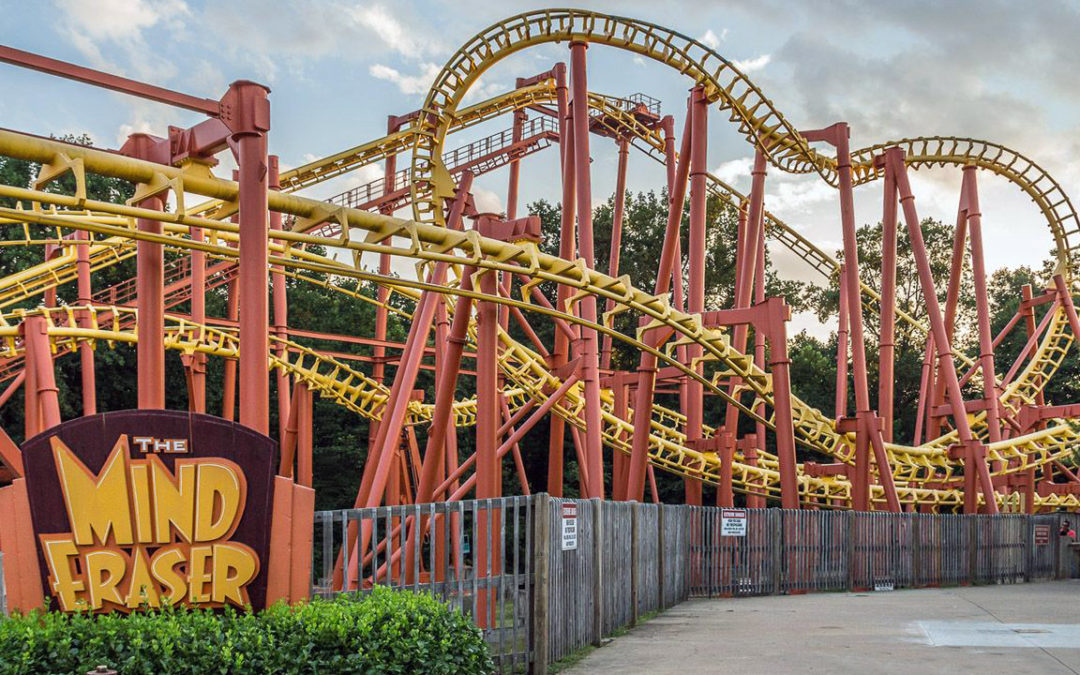
by Robert Bowie, Jr. | Feb 16, 2021 | Featured, Politics
If you witnessed the 57 to 43 impeachment vote which exonerated former President Trump and then witnessed Mitch McConnell’s speech immediately thereafter condemning Trump after he had voted for him, you get a free pass for the new roller coaster (“RNC”), which just opened in our All-White American Theme Park.
Included with the ride you get that picture of yourself with your hands in the air as you descend screaming into free fall.
You can use this picture on your driver’s license or your passport. You pay for it with your taxes and the 1% get it free.
But Mitch knows what he’s doing so don’t worry about it. He is the magician, expert of the sleight of hand.
After the House voted for impeachment, he refused to return the Senate to vote during the waning days of the Trump administration. He then declared that because Trump was out of office, he constitutionally could not vote for the impeachment he had delayed.
It is genius. With the vote, Mitch kept all of his angry MAGA followers while reassuring the 1% who have been recently fleeing the Republican ranks. Trump, he was promising, will slowly be made miraculously insignificant as his MAGA voters get reprogrammed.
Can he pull it off? Is it worth it? You have to be careful of roller coaster rides. You know how they get all creaky when you go zooming around on shaky foundations.
Why does it seem that Trump’s unflinching base always seems unified by anger?
Because the Republican party has always kept in its little secret in its closet — with Willie Horton and “dog whistle politics,” and the unity of fear of anything but a White America
McConnell’s problem is that Trump didn’t keep the secrets. He over energized the hidden heartbeat that has really propelled the republican party at least for the last half century and the South forever: White supremacy.
Trump had overreacted, gotten greedy and gave away the secret and now everything may be exposed and disclosed.
What if the Republican Party has slowly been evolving to stand for nothing other than to hate the Democratic Party? When the screen is pulled back there stands the rich puppeteer who makes his haters dance.
“Trickle-down economics” was the lie of the Reagan administration, which was denied by even Reagan’s own supporters in the end. But it was resurrected by Trump in defense of his tax cuts for the rich.
Newt Gingrich and the Tea Party preached the “spendthrift Democrats” and all unified behind a balanced budget, but Trump has exploded the deficit.
How about the lie that Republicans are good for the economy? Since the 1930s, the economy has raised by 4.6% during Democratic presidents’ administrations, compared to 2.3% with Republican presidents.
It was built into the Constitution‘s DNA and with it the Republicans in all but this election have recently lost close Democratic votes but taken the presidency with the electoral Congress.
Slowly but steadily the American theme park has evolved into a haunted house of lost ideals with the language of the Constitution over our heads as each new generation optimistically walk in as believers.
We are better than this!
America needs a party of Lincoln that is dedicated to equal protection for all and also a party of fiscal and military restraint and good judgment. Washington, Lincoln and Eisenhower offer us great examples of what Republicans could be for us now.
The party of the South can no longer dominate us. Equality is good for the economics of this country and therefore everybody in this country. Why hold ourselves back? We don’t have to be afraid of our brothers and sisters of the human race.
Let this old creaky roller coaster fall.
Even Malcolm X realized that no laws can reshape a bigoted human heart. Painfully but realistically, he prophesied:
“Do you know what integration really means? It means intermarriage. That’s the real point behind it. You can’t have it without intermarriage. And that would result in disintegration of both races.”
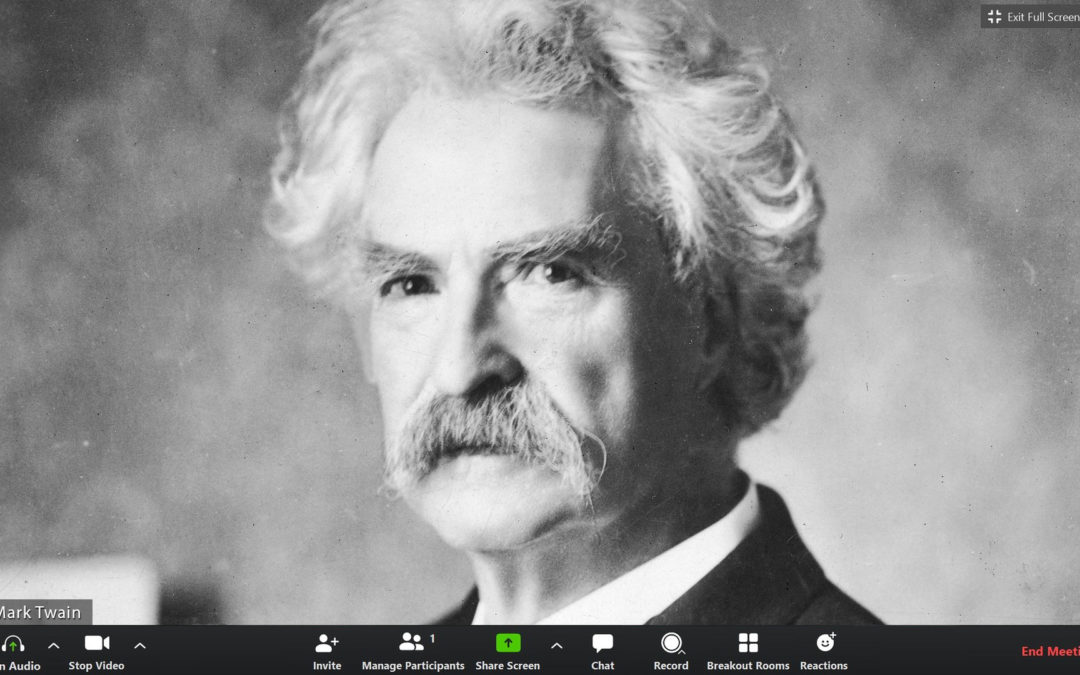
by Robert Bowie, Jr. | Feb 9, 2021 | Featured, Politics
The first rule of trial law is if the law is against you, argue the facts. It appears the first rule of impeachment is if you don’t have the facts or the law, make something up.
The law doesn’t help Team Trump in this impeachment because the country has been impeaching federal administrative officers after they have left office from the beginning.
The facts are all on film: Trump is on tape saying “Fight! Fight!” and he was not at a football game in a kick line of cheerleaders.
This is tough, but it may not be impossible for Team Trump.
The only winning argument that I can see for the Republicans is the previously untested “historical Zoom call.”
Rudy Giuliani is just the man to quote the Zoom call he had with King George III during his pretrial prep. The king confirmed that because the American Revolution was not an act of “sedition,” we are still British subjects. Therefore, the United States Constitution is unconstitutional.
He can rely on what we already know, which is that Zoom calls are really just séances: “King George? King George are you there? We can’t see you!”
Handled properly this is not a bad argument because:
1) No one has the facts to deny this
2) If there are questions, Giuliani, as an officer of the court, will swear that it’s true
3) Fox News will confirm it
4) The Senate has already made up its mind
Furthermore, Giuliani can forcefully deflect criticism by arguing that it is just those insensitive Democrats again. After all, King George is a senior citizen, and this is new technology! And also, he’s dead.
If Fox News broadcasts this, half the country will believe it!
What will protect America? How do we win back the hearts and minds of our fellow countrymen and women?
I know! I know! A counter Zoom call with Mark Twain!
Mr. Twain, how can we save ourselves from these despots? We can’t defame a dead king to depose a fascist president!
“Our papers have one peculiarity — it is American — their irreverence… They are irreverent toward pretty much everything, but where they laugh one good king to death, they laugh a thousand cruel and infamous shams and superstitions into the grave, and the account is squared. Irreverence is the champion of liberty and its only sure defense.“
Do you mean don’t take them on at all? Next, they will have the Christian churches preaching it from the pulpit! Remember “In God we trust?”
“The devil’s aversion to holy water is a light matter compared with a despot’s dread of a newspaper that laughs.”
But I have been raised to believe that there will always be heroes that will protect our constitution!
“We all live in the protection of certain cowardices which we call our principles.”
Mr. Twain may have something here after all.
My recommendation is that the Democrats give the newspapers something to work with and not put up an argument at all. In place of legal posturing that will not persuade the Republicans in the Senate, simply hand out happy faces and little American flags that can be waved with syncopated knee slapping instead of objection or logical argument.
Have we really come to this?

by Robert Bowie, Jr. | Feb 2, 2021 | Featured, Personal, Politics
Today is the most degrading day of the year if you are a groundhog.
Once again, humans are holding you responsible for predicting the environment.
At my house, we have a dirt basement with a trapdoor, where we keep an extensive collection of junk like old grills, a sun lamp, summer sports equipment including golf clubs, Wiffle balls, bats, and even the scuba equipment I use to sit on the bottom of the pool during impeachment trials or when I generally can’t stand people anymore.
I try to live in harmony with the universe.
Last summer, a groundhog moved in under our house. We lived in harmony. It would watch us play Wiffle ball as it ate our garden-fresh vegetables.
But just imagine what it must be like to be a groundhog this year, after a human pandemic and knowing half of all humans don’t believe in climate change?
I wouldn’t come out either.
But this year I need spring more than ever. So, this morning, before I even made breakfast for myself, I made a salad from fresh vegetables with nice cherry tomatoes and delivered it just outside of the hole under my house.
But then the empathy set in. It is a dirt basement after all. The groundhog is probably set up down there with its little gas mask on, only taking it off when it has to exchange the scuba tanks.
He is probably down there with the sun lamp on, sitting in my lawn chair with a wife and two kids waiting for the Super Bowl.
What if he has given up on global warming, too?
He probably doesn’t want to be an animal anymore. My guess is you could bring in Noah’s ark and the groundhog would probably blow it off.
What if over the entire earth not a single groundhog comes out this year? Not to spread conspiracy theories, but that would raise concerns that they may be talking to each other. They may be smarter than we think.
I can handle this! Genetics taught me about the end of the road. I know about stuff like this. I’m related to Jim Bowie. He died in the Alamo.
I am going to get a bottle of my best wine, three wine glasses, a couple of juice glasses for the little ones, and knock on the trap door.
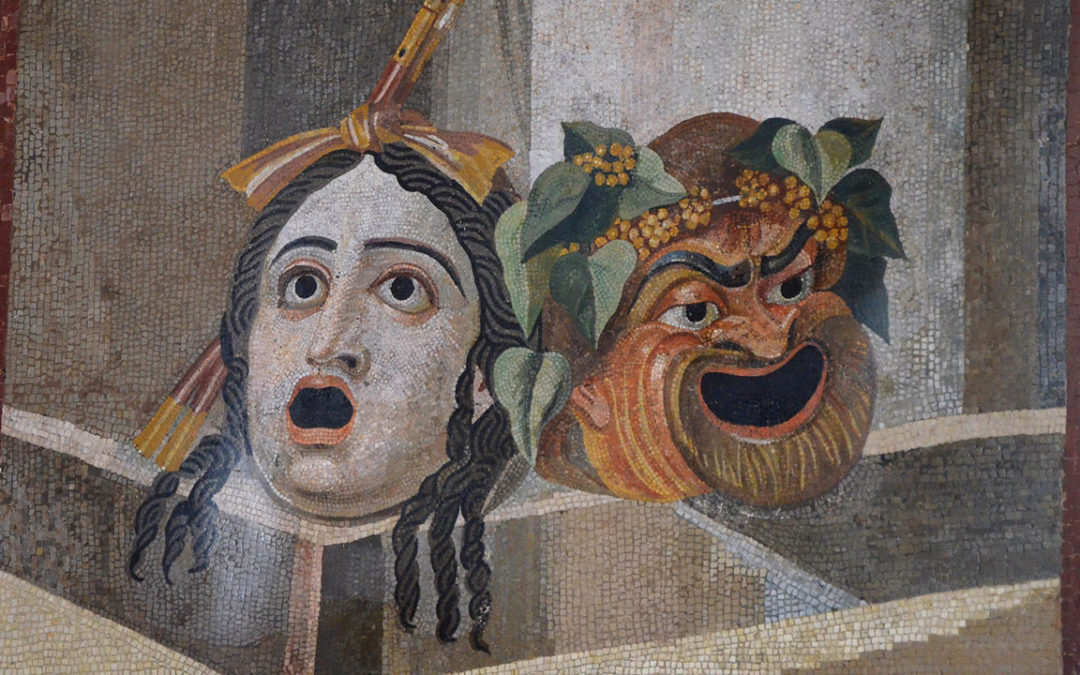
by Robert Bowie, Jr. | Jan 26, 2021 | Featured, Politics
We should be thankful that even though the theaters are closed we still have an alternative opportunity for “the willing suspension of disbelief.”
But what kind of alternative is it? Is it traditional tragedy? Is it comedy? Is it maybe the return of the satyr play — the last play in a Greek tragic cycle that featured all forms of bestiaries like farting and gross sex jokes to send the crowd off to the exits laughing?
This new form of theater doesn’t need a gathered audience. It can be dispensed through the endless dark web, Twitter and other social media, supplemented by Fox and MSNBC.
It’s brilliant. We all watch it. We can’t take our eyes off of it. It has merged “reality TV” with “enlightened self-interest,” but it doesn’t quite work.
It’s not Oedipus Rex: A former president meets democracy at the cross roads and brags the Statue of Liberty loves to be goosed.
It certainly is not like Julius Caesar either, where the Senate rises up to save the republic from a tyrant.
Wait one minute — what if it’s for a new kind of audience?
What does this new kind of theater provide?
It’s not just surround sound, it’s surround reality. Can’t get much better than that. Who needs those big crowded noisy theaters when you can keep your headset on and go to your own bathroom?
Regrettably, this new kind of theater may not be good for traditional theater. In traditional theater, the producers fight for money to put up their shows and maybe one out of five return a profit to investors. But with the recent “Trump Bump,” polarization is making everybody money, including MSNBC and Fox News.
This new audience is happiest when it is angry at somebody else because that’s what keeps the political parties flush with money and the audience shoveling more and more into campaigns, congressional healthcare, and retirement.
If you don’t know who is running the Republican Party, don’t ask — just watch the impeachment proceedings. But please don’t expect an answer, because right now I’m not sure if the Republican Party knows.
The only thing for sure is that the audience will be “hangry” — hungry for anger — the perfect couch potato entertainment.
After the Super Bowl and maybe “60 Minutes,” I’m sure they will let the lions out of the Colosseum and we can watch Rome burn.
It is a satyr play and we may be the actors, not the audience, but we are still free… to leave laughing.
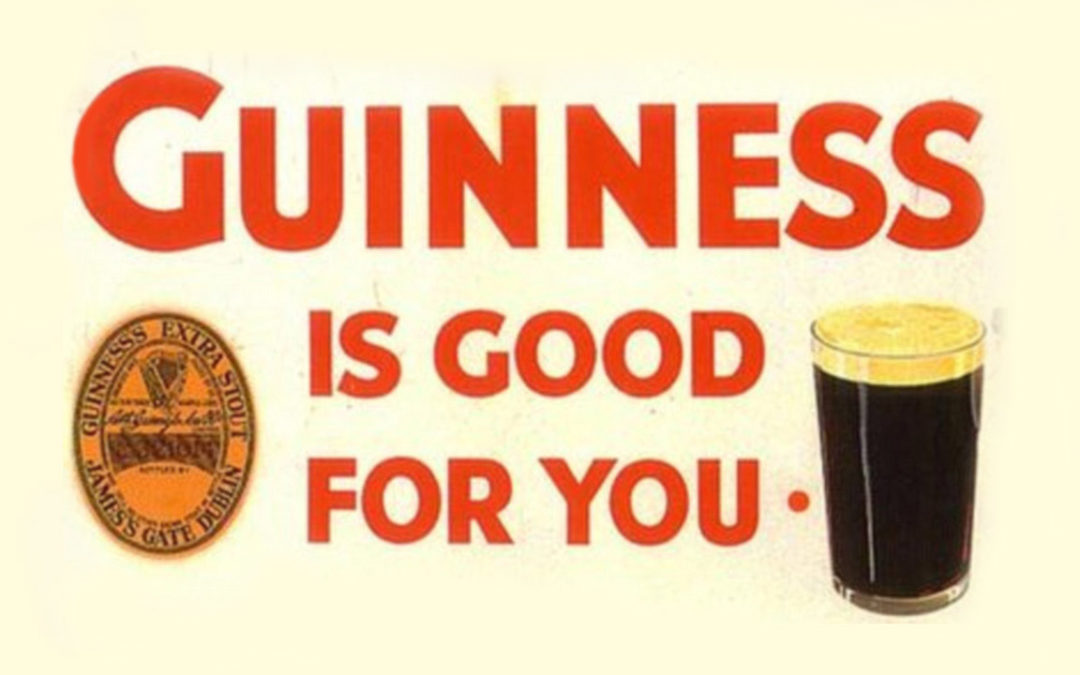
by Robert Bowie, Jr. | Jan 19, 2021 | Featured, Politics
Almost 50 years ago Guinness decided to sell alcohol in the American market. It put up billboards with the slogan: “Guinness is good for you.“
That was OK in Ireland but not necessarily in the United States. Guinness couldn’t really prove that it was the truth.
So in fear of being sued in American courts for “misrepresentation,” they changed it to ”Guinness is for you.”
For the last four years, President Trump has used Fox and social media to build his base with willful misinformation. And after he lost the last election, he claimed the election stolen was from him, a claim repeated endlessly by him and others on Fox and social media.
He could not prove it was the truth, because it is not, but maybe he doesn’t have to.
The question is: was Trump’s misinformation worse than a Guinness hangover?
Trump used this misinformation to encourage his supporters to come to Washington on January 6th to disrupt the Electoral College certification of our election.
The House of Representatives and the Senate were attacked and our elected officials were put at risk. Five people died.
American courts recognize and award damages for the dissemination of misinformation in commercial maters in the form of false advertising and in personal matters as defamation (formally libel and slanderer). But when it comes to misinformation delivered as political speech, it gets more difficult. The 1st Amendment largely protects that speech because it is political, but let’s follow the money.
Is free speech political? Or is it property, which can be sold to make money even if it is misinformation?
On October 12, Fox paid millions to the family of Seth Rich for repeatedly publishing the lie that he had been involved in leaking the DNC emails during the 2016 presidential election when in fact a Russian intelligence officer had hacked and leaked the emails. There was no truth or factual basis for the Fox story. Fox continued to broadcast it anyway. Fox settled the case before Lou Dobbs and Sean Hannity were set to testify under oath.
What makes this interesting is that part of the settlement required that it could not be disclosed until after the election in November.
Doesn’t this Fox settlement requirement both confirm that their reporting was political and acknowledge that it was false all along?
If you can afford to pay for the lie and even profit from it, it’s OK? Is the difference between the settlement and the profits generated for Fox from the marketing of misinformation the fair market value of propaganda in America?
It is business. It is politics. The business of American politics. But what is for sale?
The influence over the American voter is for sale, but is the country at stake? Is the price tag for our country the cost of the propaganda it would take to buy it?
Can this really be what the framers intended? The revolution? The Constitution? The freedom of the people from King George? And then give King George complete immunity and absolute power if he becomes the president?
It is amazing how we rationalize the truth. Over the last four years, maybe Guinness has been good for me.
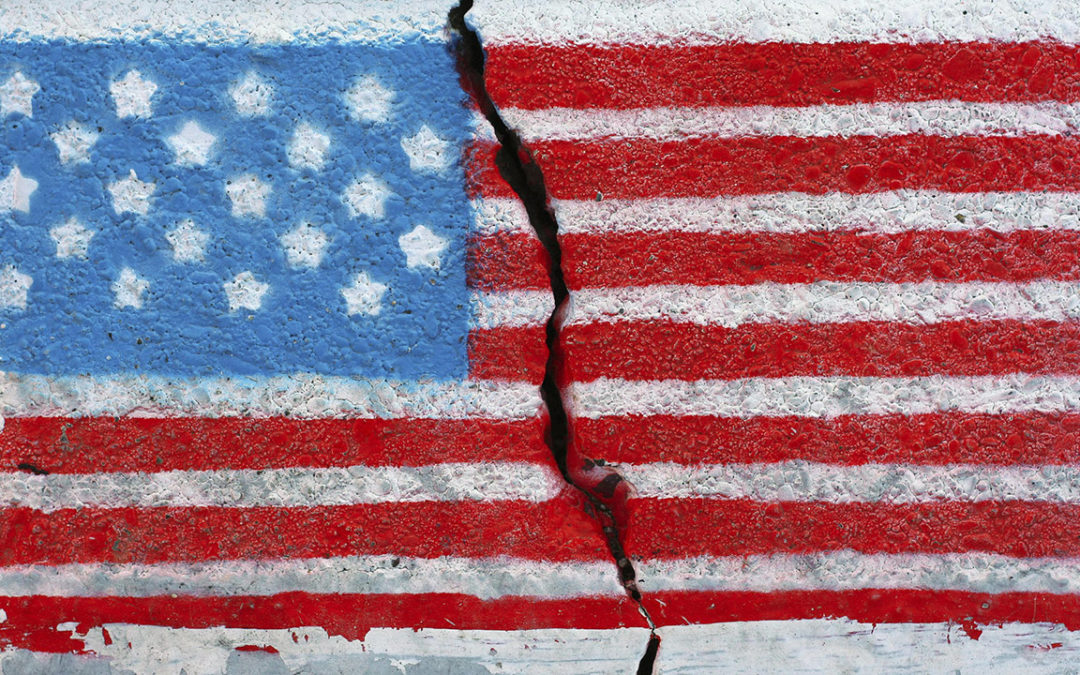
by Robert Bowie, Jr. | Jan 5, 2021 | Featured, Politics
You don’t really know what’s going on unless you have the courage to read the tweets and live in the misinformation of his campaign. If you really think that this all will go away with an inauguration of a Democratic president, you’re crazy!
The Biden victory did not affect most of the embedded state and local Republicans candidates who rallied around and were supported by Trump. That divisive campaigning has not stopped.
It has increased with an attack on the legitimacy of the election and certification, which has been supported by Republicans who are still afraid to challenge the president.
As reported in The New Yorker, Stuart Stevens, a Republican strategist who advised Mitt Romney in 2012, tweeted: “The bottom line is that the @GOP has become a threat to democracy…it’s a clear and present danger and should be treated as such.” (Emphasis added.)
Steve Schmidt, a Republican campaign strategist for John McCain in 2008, called Trump Republicans “an American autocratic movement with Fascistic markers.” (Emphasis added.)
Below is a video that was posted on Twitter by President Trump 12/23. It’s a 17-minute video split into two parts. I wouldn’t want you to have to watch the whole thing but check out the second half. This tweet multiplied with 111k retweets, and 10.4K quote tweets and received 265K likes.
Since the election, Trump’s efforts to take over the country have gotten more extreme, culminating in efforts to overturn the vote of the people.
Abraham Lincoln, also a Republican, has been quoted as saying “You can fool all the people some of the time and some of the people all of the time, but you cannot fool all of the people all of the time.”
Actually, Abe, all you need is 49% of the vote and the Electoral College.






